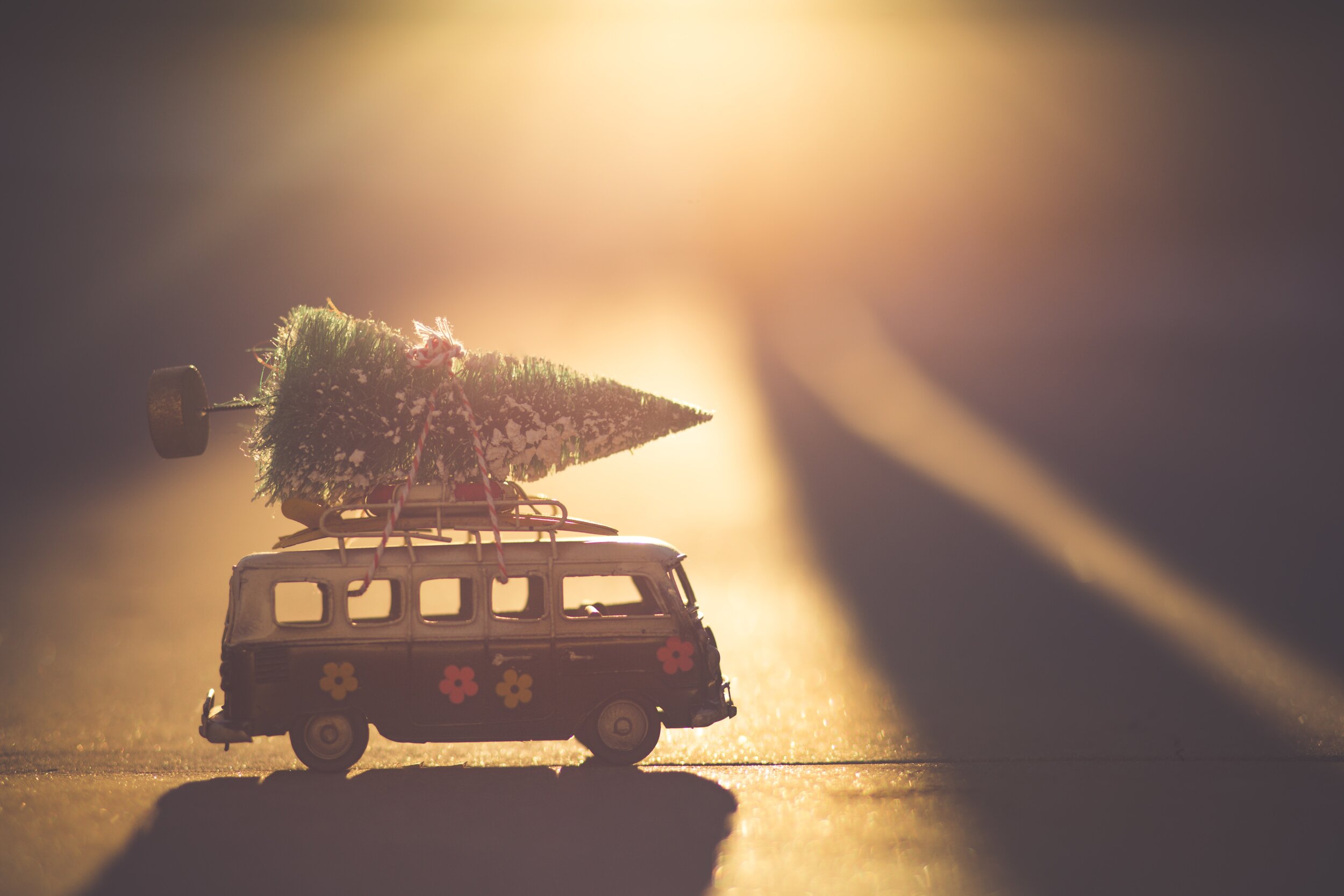Don't forget the planet this Christmas
We all love Christmas but it’s time to put the brakes on the throwaway or we’re in danger of celebrating ‘Wastefest’ or my new favourite term ‘Tatmas’ – the frenzied exchange of tat as a monstrously inferior way of showing affection for one another – put it in the dictionary please.
Average household spending goes up by 25% more per month over the Christmas period and with consumerism responsible for up to 60% of carbon emissions this time of year can be a planet wrecker.
So, let’s talk waste – up to 1 billion cards, 83 square kilometres of wrapping paper, 125,000 tonnes of plastic packaging, 6 to 7 million trees and 4200 tonnes of aluminium foil - all binned. Our little island has run out of room for all the disposable stuff we buy so it’s being shipped off to countries which may be larger but they don’t know what to do with it either. It ends up floating about in the ocean or destroying habitat for the few precious species we have left. So, before you reach for your credit card have a think about whether this is the best way to show your loved ones that you actually love them.
According to the UN, if food waste were a country it would be the 3rd largest global greenhouse gas emitter in the world. We buy 20,000 tonnes of turkey for the big day. How much Christmas dinner is going in the bin?
How can we celebrate Christmas in a way which is good for you and good for the planet? How can you still have fun and make sure your kids will have a planet to grow up on?
Rent or buy a potted Christmas tree. Trees are essential for carbon absorption so if you can keep yours alive instead of being landfilled or chipped, you’ll be giving a gift to planet earth this Christmas.
Experiences rather than presents are often enjoyed more and have less of an environmental impact. Buy presents that are beautiful, useful and durable – vintage or upcycled gifts reduce the impact on the world’s diminishing resources but if you do buy new look for quality over quantity and something to treasure for a lifetime. Even better instead of spending twenty minutes online shopping use that time to write down all the ways in which the receiver has improved your life and present it to them on a card. This card is a keeper rather than post-Christmas landfill. Give your family the gift of gratitude instead.
There are so many sustainable wrapping paper alternatives now. Recycled paper or paper made from lokta shrub are all more sustainable. The Japanese art of furoshika uses reusable fabric to wrap gifts. Avoid any paper with a sheen, glitter or do the ‘scrunch’ test – any paper that you can’t roll up easily into a ball probably has a metallised plastic film.
Plan your Christmas meal with waste in mind. Red meat has a very high carbon footprint so stick with Turkey or be brave and go veggie or vegan. Let people serve themselves rather than piling up their plates and be savvy about using leftovers. There’s nothing wrong with still eating turkey soup on New Year’s Day.



